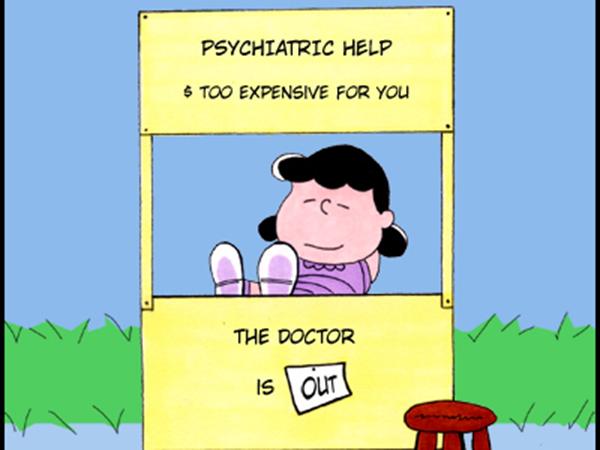I guess you could say it all started with Lucy, the character that stood beside all those beloved Peanuts characters; she was different from the rest. While most people loved and aspired to be like Charlie Brown, Sally, and even blanket toting Linus, very rarely did people want to be just like Lucy. They seemed to overlook her leadership, creativity, and even her tenacity; instead, she was labeled as over-demanding and the dreaded B-word. However in this case, it’s not what you might think; the B-word, according to the new trend sweeping the country, is “bossy.”
Bossy, according to Merriam-Webster, means “fond of ordering people around,” but it is currently the center of a national campaign to “Ban Bossy” spearheaded by Sheryl Sandberg, the chief operating officer of Facebook, Inc. She is moving to raise young girls’ self-esteem and promote their leadership skills by tabooing the word bossy. She argues that the use of the word bossy causes girls to recoil and become submissive out of fear of the judgment of others during a pivotal developmental period, causing a life-long battle for women to become leaders.
When did this one word become such a harmful adjective? So often it’s associated with not hearing another’s side, but that’s so far from its actual meaning. I don’t believe that the campaign means to demolish the word bossy, but rather demolish the negative association of the word. Really, the issue is that young children typically lack empathy; actually, there is an array of studies that suggests that young children don’t learn compassion until around age eight. So wouldn’t we as a society be much more productive if we rewarded and identified leadership in girls and taught empathy where it is absent?
It goes back to a riddle I first heard in elementary school. See if you can guess the answer. “A father and his son are in a car accident. The father dies instantly, and the son is taken to the nearest hospital. The doctor comes in and exclaims, “I can’t operate on this boy.” “Why not?” the nurse asks. “Because he’s my son,” the doctor responds. How is this possible? When I first heard this riddle, I was one of twenty fourth-graders stumped for a solid fifteen minutes. The answer to the riddle is that the surgeon is his mother, but, really the answer to this riddle is the problem in our modern society.
We give women no credit. This riddle speaks to the male word association with the word “doctor” or the lack of confidence we have in a woman’s capability. It baffles me that this riddle even exists, that it can be so out-of-the-question for a woman to be both a surgeon and a mother. We say we’re a modern society, that women have equal pay and equal rights, but how can that even be remotely true if women are still earning 77 cents for every dollar that a man earns, while society still refuses to accept that a woman has the ability that a man does of working a successful and demanding job?
It’s not that the government needs to change how things are; it’s that we do. We as a society need to break gender association with jobs and positions in family life. We are so often prejudiced about the thought of a stay-at-home father that we disregard that in different families, different positions can be just as well-filled; in some cases, women may not always be the most nurturing parent.
We need to learn acceptance, acceptance of the differences in families and acceptance of the differences in each other. If children, not just girls, were told they had “leadership skills” instead of being called “bossy,” imagine what higher self- esteem they would have. It doesn’t mean we need to reward a lack of empathy, but there is a way to teach compassion without crushing leadership and a way to avoid raising a passive generation, because, honestly, we need more Lucys in this world.























































Melissa Padgett • May 28, 2014 at 9:28 AM
Lauren,
I love your insight on “bossy” vs. “leadership skills.”
It’s not easy for a female in leadership role to be accepted or legitimized, particularly by men. I hope that girls and women alike can start looking at adjectives like “bossy,” “assertive,” “strong,” and “competitive” as compliments. #girlpower
Tom Rickling • Apr 18, 2014 at 11:34 PM
Interesting take on this topic, Lauren! I would qualify it by saying we need more Lucy’s with empathy!